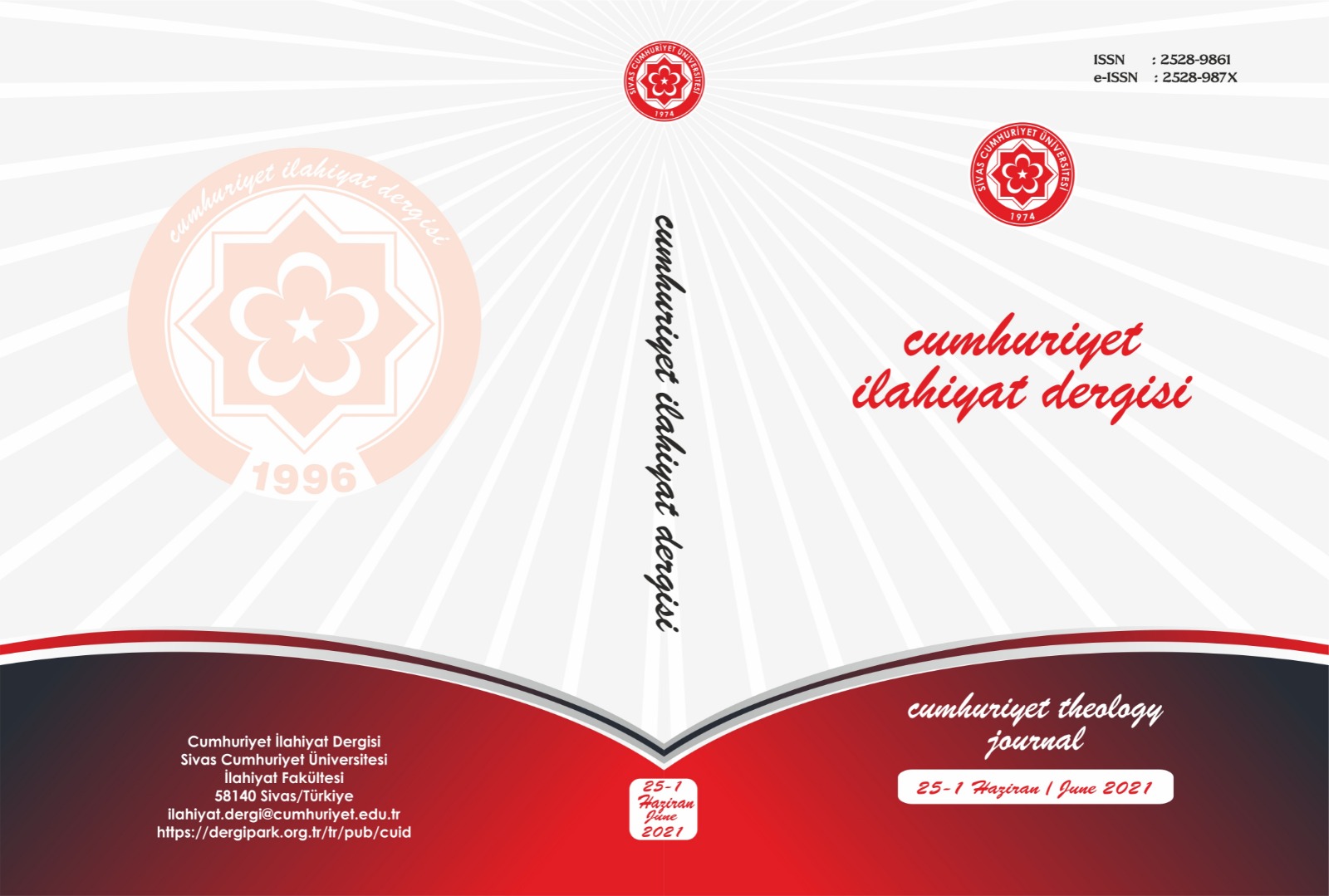Zarûrî Küllî Makâsıdın Tertibi Problemi Üzerine Bir İnceleme
An Elaboration on the Problem of the Ordering the Compulsory-Comprehensive Maqāsid
Author(s): Fatih ÇinarSubject(s): Theology and Religion, Islam studies, Sharia Law
Published by: Cumhuriyet Üniversitesi İlahyat Fakültesi
Keywords: Islamic Law; Methodology of Fiqh; Comprehensive Maqāsid; Nafs; Order;
Summary/Abstract: This article discusses the issue of arrangement /ordering of compulsory-comprehensive maqāsid. In this respect, the main purpose is to help clarify the ordering problem. To accomplish this task, the classical and contemporary studies on this subject were reviewed. Within the scope of this research, it has been determined that the universal principles are generally listed in the order of religion, nafs, mind, generation and property. However, alternative orderings can be found where the nafs is placed at the forefront. The focal point of the ordering problem is emerges from the question of whether Allah's rights/otherworldly maqāsid should be priorities or servants' rights/worldly maqāsid. The conflict between religion, which is an otherworldly value, and other principles played an active role in this classification of maqāsid. Many legal scholars who placed religion in the first place in the classical period did not clearly explained the justification of their arrangement. Also, many of today's researchers also stated that religion should come first. The scholars who put both the religion and the nafs in the center have listed many evidence for their preference. The legal scholars who put religion at the center have pointed the verse " I have not created the jinn and men but they may worship Me" as the basis for their views. Accordingly, the main purpose of the creation of human being is to serve Allah. Because the most important right to be fulfilled is the right of Allah religion should take precedence over other virtues in maqasid. Religion is also the only essential way that leads to eternal happiness. According to the legal scholars who put religion into the center, other maqasid principles are secondary. Correlatively, other principles serve religion. The hadith "The debt to Allah is more worthy of being paid." has been made the basis. Since religion constitutes the essence of the maqāsid, it is also a requirement of reason to make religion essential. According to another reason they stated, the obligation of jihad also ensures that religion is at the center. The obligation of jihad causes lives to be sacrificed to protect the religion. This means that religion is superior to the nafs and other principles. Because jihad, which is the order of religion, is fard. The scholars who maintain that the rights of the servants should take precedence over the right of Allah have cited also a lot of evidence. We come across with their views presented as a weak view in the sources or as an answer to a possible question. There is no clear information about to whom these views belong. Therefore, it is stated that no one introduces the nafs to religion. As a matter of fact, it is stated that it is not correct to qualify these views as an independent view defended by scholars. In other words, the view putting the nafs at the center and the evidence to this preference at this point should be regarded as hypothetical. We are of the view that these claims of contemporary writers need to be proven. The basic reason of the views that puts the nafs in the center is based on the pre-acceptance that maslahahs like the nafs are the right of servants while religion is the right of Allah. The given reasons can be addressed under three main headings: punishments, mitigation of prayers, and concern with non-Muslims. In case where the rights of the servant and Allah unite, the rights of the servant should be preferred. Because, the rights of servants are on hardship, and the rights of Allah are on breadth and mercy. On the contrary to the rights of the servants, postponing or neglecting the right of Allah will not harm Allah. It is clear that if the rights of the servants face postponement, they will suffer serious damage. The fact that killing a man who both abandoned his religion and killed someone unfairly, not for his departure from religion, but for retaliation, that is, the right of a servant, is a concrete example of this. The shortening of the prayer during the journey, the patient’s abandoning standing in prayer and the fasting, and other examples also require the human to be in the center. Today, there are researchers who take the nafs to the center. The existence of religion for humans and society reflects the view of these researchers. Because it is clear that religion will remain dysfunctional where there is no human and society. When these evidences are examined carefully, it can be concluded that the opinion that defends the nafs to be at the center of comprehensive maqāsid is preferable
Journal: Cumhuriyet İlahiyat Dergisi
- Issue Year: 25/2021
- Issue No: 1
- Page Range: 115-137
- Page Count: 23
- Language: Turkish

